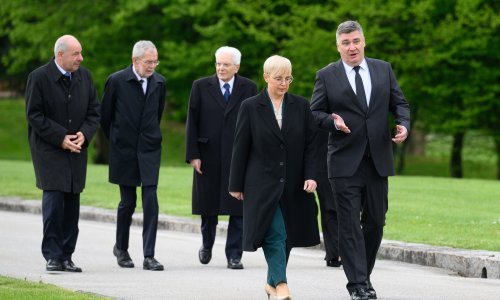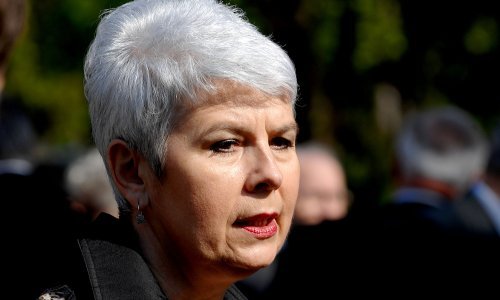This year, Croatia and Slovenia are expected to submit their depositions to an international arbitration tribunal in charge of determining the course of the border-line at sea and on land between the two countries and they are also expected to file their mutual responses to each others deposition.
The five-member Arbitral Tribunal was constituted pursuant to the November 2009 Croatia-Slovenia Arbitration Agreement, and according to the web site of the Hague-based Permanent Court of Arbitration, "at the first procedural meeting (on 13 April 2012) the Arbitral Tribunal and the parties discussed the procedural framework for the arbitration. According to the proposal by the parties, the Arbitral Tribunal accepted a calendar for pleadings pursuant to which the parties’ first memorials would be simultaneously submitted on 11 February 2013, the parties’ counter-memorials would be simultaneously submitted on 11 November 2013, and a hearing would be held in the spring of 2014."
Thus, a ruling of the Arbitral Tribunal on the border dispute should not be expected before the end of 2014 and early 2015. Its verdict will be final and the countries will have to apply it.
According to the press release which the Permanent Court of Arbitration issued after the first procedural meeting in April 2012, the Arbitral Tribunal "shall determine (a) the course of the maritime and land boundary between the Republic of Slovenia and the Republic of Croatia; (b) Slovenia’s junction to the High Sea; (c) the regime for the use of the relevant maritime areas.."
The tribunal should be guided by the rules and principles of international law, equity and the principle of good neighbourly relations in order "to achieve a fair and just result by taking into account all relevant circumstances".
The Arbitral Tribunal, which was constituted in 2012, is chaired by Judge Gilbert Guillaume of France, former President of the International Court of Justice. The other members are Professor Vaughan Lowe of the United Kingdom and Judge Bruno Simma of Germany. The Croatian government appointed international law expert Budislav Vukas as Croatia's representative in the Tribunal, and Slovenia's representative is Jernej Sekolec. The Permanent Court of Arbitration acts as Registry in the arbitration by agreement of the Parties.
Vukas retired as a maritime law professor from the law school of Zagreb University a few years ago, and he used to be a vice president of the International Tribunal for the Law of the Sea in Hamburg. The Croatian government gave approval for signing a contract with the law firm Matrix Chambers that will be involved in a team of experts for the preparation of participation in arbitration proceedings on the border dispute in accordance with the agreement between the governments of Croatia and Slovenia. Also Croatia's agent at the proceedings will be Maja Sersic, a professor from the Zagreb law school and co-agent Andrea Metelko Zgombic, an assistant foreign minister.
Slovenia's agent is professor Mirjam Skrk and co-agent Simona Drenik, an official in Slovenia's foreign ministry.
The border arbitration agreement was signed by the two countries' prime ministers, Jadranka Kosor of Croatia and Borut Pahor of Slovenia on 4 November 2009 in Stockholm.
The document was ratified by a two-thirds majority in the Croatian parliament and was supported by 51.54 per cent of Slovenians who went to the polls for a referendum on the matter.
The treaty went into force on 29 November 2010.




































